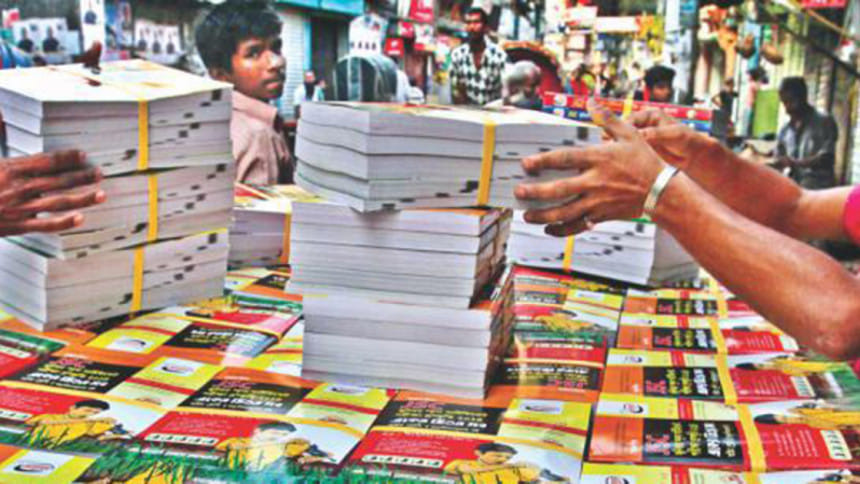Students' dependence on guidebooks

The use of below par textbooks in our educational system has given rise to a most disturbing trend. A large number of students now cannot do without guidebooks that are not part of the curriculum, but rather specialise in assisting students in getting a good score in the ever increasing number of examinations they have to sit for, starting as early as class-V. The irony is that some of these guidebooks have been banned by the government but are being sold openly.
According to both teachers and students, many of the textbooks are so abridged that it is difficult for students to get a good understanding of the topic being discussed. Lack of coherence between contents and exercises, between textbooks in different classes and the absence of context in terms of the material textbooks cover, make it difficult for students to build their own perception regarding what they read.
To make up for this shortcoming, students often rely on various guidebooks or question and answer sheets handed out to them at coaching centres. And it is by memorising their contents that students are trying to do well in their examinations. But is it wise to simply churn out increasing number of students having a degree, instead of producing educated minds that can lead the country forward through their understanding and innovativeness?
As the purpose of a teacher is to play the role of a guide, in order to reduce students' dependence on guidebooks, teachers should be better trained to simplify topics for them. Authorities should make textbook content easier for students' to understand through input from experts and reduce the emphasis on examinations as opposed to education.

 For all latest news, follow The Daily Star's Google News channel.
For all latest news, follow The Daily Star's Google News channel. 



Comments